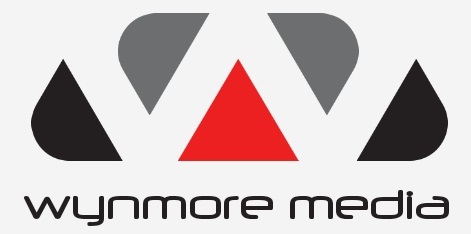It can be extremely frustrating for a business owner to suffer a hack to their website. Hackers sometimes have trouble recovering from their attacks. The first step to keeping your business website safe from hacker attacks is to understand how they happen. Having worked with businesses in many different industries to help them clean up their website after a hack, we have experience as a digital marketing agency that builds high-quality websites for small businesses. Even if you can usually recover what has been hacked, it may take a long time and a lot of hard work to do so.
In this article, I will explain the importance of website security and some methods you can implement now to start protecting your website.
The most common reason for a website’s hack is one of the following.
- Credentials for logging in are weak. The username and password you use must be secure. You should never have your username as “admin.” Using the name of your dog or your spouse’s birthday as a website password is also not recommended. Ensure that the password you create is strong, complex, and impossible to crack. Use a mnemonic device as your password. Taking a memorable sentence, abbreviating the words, and concatenating the initials of the words forms the best mnemonic password strategy.
- Plugins and themes that are out of date. Keeping up-to-date on updates for a platform like WordPress will help you avoid potential problems. Hackers can easily access your site through an outdated site.
- Comments are enabled. We see many spam comments on websites from people who are attempting to redirect your customers, or you, to malicious sites where your information will be captured and you will be exposed to malware.
- Vulnerabilities go unnoticed. It is common for less experienced and more affordable hosting services to fail to watch for vulnerabilities, which can put your site at risk.
Checking Your Site’s Security: What You Need To Know
The security of your own site can be checked to ensure that everything is in order even though each hack has its own fingerprint.
Check your website frequently as a first step. Check all links on your website and search results, and check the ones driven by your ads and marketing campaigns. It’s not just about visiting your website directly and clicking all links, but also searching your business online and clicking on results from search results.
In some cases, hackers will target sites where they think the owner isn’t likely to check, so you won’t notice the hack for months and then it will take a lot of money and time to fix everything that was damaged.
Learn About The Dangers of Being Hacked From This Story
Storytelling helps us learn from the mistakes of others. Here is a story of how a website was hacked in order to demonstrate the problems a hack can do to a website and beyond.
One such software update was made available last spring by the Texas-based company SolarWinds. Bug fixes and performance enhancements were supposed to be included in the update for the company’s popular network management system called Orion, which keeps an eye on all the various components of a network. Customers can log into the company’s website to access the company’s software development and wait for the update to seamlessly land on their servers.
Sounds like another routine update, right?
In a coordinated cyberattack directed by hackers coordinated by the Russian intelligence service, the SVR, malicious code was slipped into Orion’s software after it was updated, then used as a gateway to a massive cyberattack on America.
According to Sudhakar Ramakrishna, an estimated 18,000 customers may have downloaded this malicious code between March and June 2020. The exact numbers are still unknown to this day.
The hack was unlike any other hack. Launched by a sophisticated adversary, Russia, who took aim at a known weakspot in our digital lives: the routine software update.
Despite its design, the hack only appeared to function under a very specific set of conditions. The tainted update had to be downloaded and then applied to the victim’s system. The first condition was met. Additionally, the hackers needed to be able to communicate with their servers from their compromised networks.
According to Ramakrishna, there were about 100 companies and a dozen government agencies that were compromised. The companies included Microsoft, Intel, and Cisco to name a few. The Departments of Energy, Treasure, Justice and the Pentagon were among the government agencies compromised.
Hackers also infiltrated the Department of Homeland Security’s Cybersecurity and Infrastructure Security Agency, and exposed its computer networks to cyberattacks, to their embarrassment.
“The hack was on of our worst nightmares,” said Tim Brown, vice president of security at Solar Winds.
SolarWinds Inc. provides software to help manage networks and systems for businesses, as well as the information technology infrastructure and the data that support them. Headquarters are in Austin, Texas; sales offices and product development offices are located in several countries around the world.
https://www.solarwinds.com/
What to do to secure your website from hackers?
Small business owners tend not to think about website hacking, but they should. If you are getting a new website designed or redesigned, consider avoiding getting hacked up front since the costs, hassle, and issues associated with hacking are significant. We have compiled a list of tips that will help you protect your site from hackers.
- Make Sure You Use A More Secure Login Name For WordPress Instead Of “Admin”
The username of most people who create websites is admin, which makes it easy for hackers to compromise the website. If you don’t want the hackers to guess your username, please change it immediately
- Use a Mnemonic for a Password
Passwords using mnemonics are the most common. You can create a password by abbreviating a memorable sentence and concatenating its words’ initials.
- Theme updates should be performed on a regular basis
WordPress sites of small businesses are prone to this mistake. It leads to issues when they don’t update their theme after they have their site built. Because of this, you may be leaving an open door for hackers to take advantage of. Regular theme updates are included in our website maintenance services for WordPress clients.
- Plugins should be updated regularly
It is essential to keep your plugins and your WordPress theme up to date so your website remains secure. You can get your site hacked if you don’t update plugins regularly. The defenses of your website become vulnerable when you use outdated plugins.
- Turn Off Comments On Your WordPress Website
Today, most WordPress websites do not allow users to leave comments, and if you have a blog on your site, most comments are spam. Taking the risk of disabling comments can give hackers an additional way to break into your site.
- Your website should be backed up every day
We take daily backups of our client’s sites when we host their websites as an extra precaution just in case something goes wrong (or they break something) and we can restore it from a previous backup. You don’t always get what you pay for when you use a web host. Hostgator and Godaddy do not back up their shared hosting accounts daily. A cheap hosting provider rarely does daily backups, which leaves you highly vulnerable with your business website. Unless you have a back up, without an emergency situation you could end up having to start over from scratch if something goes wrong.
- Monitor For Vulnerabilities And Hacking Attempts With A Proficient Website Host
It is because of cheap website hosts that hackers are able to hack a site and not be told when it has gone wrong. Small businesses are often unaware that they have been hacked for several months before they discover that. It may be too late to fix the hack and they may be challenged with resolving their issues then. The company’s team performs continuous monitoring of all client websites to ensure they do not have vulnerabilities or hacking attempts.
- Whenever possible, utilize two-factor authentication
Your website will be more secure if you use two-factor authentication. This functionality is not available by default in WordPress; however, some plugins can enable this on your website. Shopify, for example, offers this feature. You should turn it on for site security purposes. In addition to your email account, you can also enable two-factor authentication for your Facebook business account. Recent news reports mention a company whose Facebook Ads account was hacked and they didn’t realize how much revenue they had racked up. An associated credit card was charged $10k for advertising before they caught it.
Has Your Website Been Hacked? Here’s What You Need To Do.
Whether your website was hacked or you do not want it to be hacked again, our website maintenance plans are a great place to start. With the help of our digital marketing professionals, we can build you and your small business a secure, user-friendly website.
Time To Meet With Nick
Nick Roy has been involved in marketing and website design since 1999. He has been a business owner since 2008 where he grew his first agency, GMM Creative, to 7 figures in five years before a bad acquisition brought that to a halt. That combination of success and failure provides Nick with a unique perspective to share with clients on what it takes to succeed as a small business owner. While he currently holds an MBA from Hawaii Pacific University, he is primarily self-taught when it comes to website design and online marketing. He is also an instructor of social media marketing for Wynmore Academy. Click here to set up a time to talk with Nick about your business goals.

